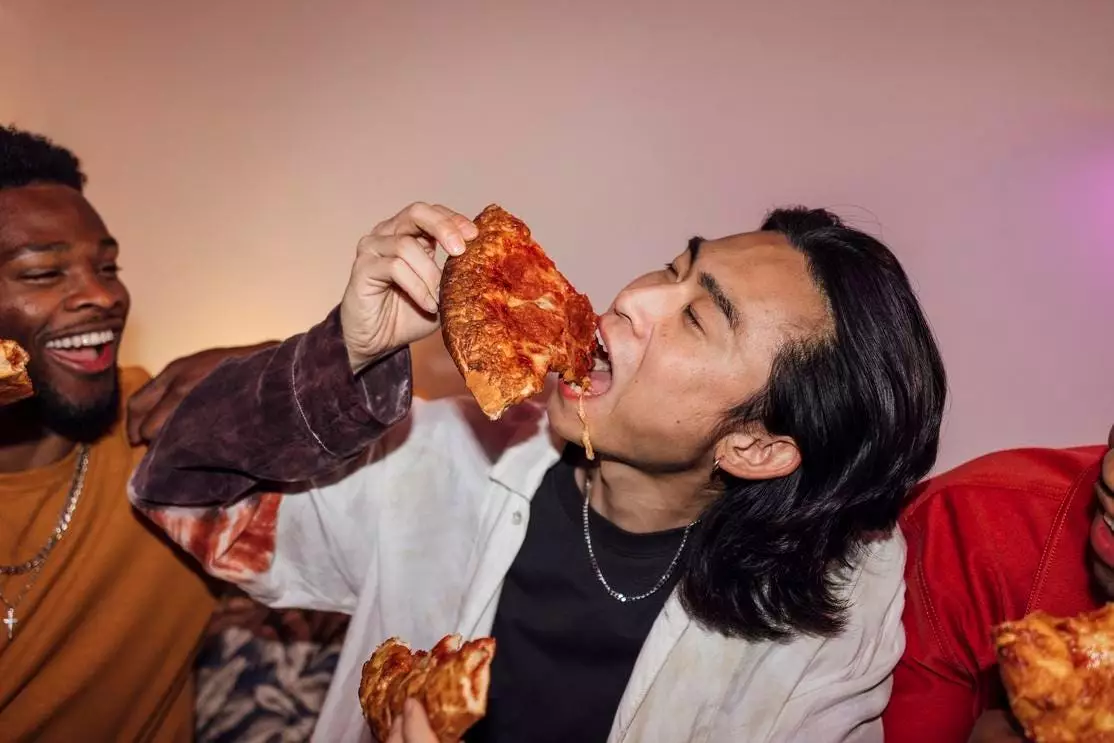Cannabis has long been associated with an intense yearning for any number of snacks—commonly referred to as the “munchies.” These cravings are not mere figments of imagination, but rather deeply rooted in complicated biological processes. Studies, such as one published in *Nature Neuroscience*, reveal that compounds in cannabis stimulate the brain’s endocannabinoid system. This system plays a vital role in enhancing our sensory experiences, particularly our perceptions of taste and smell. When cannabis alters these senses, food becomes much more enticing and delicious than it normally would be, making it all too easy to ignore signals of satiety. The presence of THC, the primary psychoactive compound in cannabis, increases levels of ghrelin, the hunger hormone, making individuals feel an acute sense of appetite that pushes them toward food.
However, this phenomenon cannot be understood solely through the lens of biology. The enhancement of reward pathways in the brain—particularly with the release of dopamine in areas like the striatum—creates a circular relationship between cannabis and craving. The munchies become less about satisfying hunger and more about indulging in rich, rewarding experiences that evoke pleasure and comfort. While many revel in a temporary escape provided by their cannabis-enhanced snack sessions, the varied effects of cannabis on different users complicate the narrative. Not everyone experiences this rewarding cycle uniformly.
Fast Food Culture: A Comforting Companion
The intersection of cannabis use and fast food culture is particularly interesting in today’s fast-paced society. With cannabis legal in various regions and its acceptance soaring, 4/20 has transformed from a subculture celebration into a mainstream foodie festival. This day is no longer just about the cannabis experience; it has morphed into an opportunity for consumers to indulge in comforting, convenient food options without the stigma. Fast food restaurants are quick to capitalize on the rising popularity of this trending event, crafting extravagant menu items aimed squarely at those with cravings heightened by cannabis.
Recent surveys indicate that a significant portion of Americans, especially in the younger demographics, are increasingly gravitating towards fast food. The culture of munchies has become inextricably linked to the craving trifecta: salty, satisfying, and speedy. This pairing has created a marketplace ripe for appealing promotions and specialized offerings that cater to consumers predominantly searching for quick gastronomical relief. Consequently, organizations are pivoting from conventional marketing strategies to create experiences that reinforce emotional comfort, transforming how the touchpoints of food culture and cannabis coalesce.
The Evolving Relationship Between Cannabis and Food
The concept of munchies has transcended an impulsive act to delve into a full-fledged cultural movement. Cannabis use among Americans is becoming increasingly recognized within the broader health framework, not for moral implications but as a common behavioral practice. With public health research documenting cannabis alongside established lifestyle metrics like food frequency and physical activity, brands have begun to pivot toward acceptance rather than admonition. This substantial cultural shift has facilitated the creation of marketing strategies that feel more affirming than problematic.
As cannabis consumption continues to escalate—according to Gallup, 16% of adults reported using marijuana in 2022, a significant increase from just 7% in 2013—brands have been adjusting their messaging to resonate with a wider audience. The modern cannabis enthusiast is not a fringe character but rather a crucial segment of the consumer base, prompting eateries to target a demographic that feels at ease exploring indulgence, often letting go of typical food boundaries. This cultural evolution not only bolsters the legitimacy of cannabis but also encourages associations with positive experiences around food.
Indulgence in New Forms
Delving deeper into the effects of cannabis on appetite and health challenges preconceived notions. While the stereotype may suggest an inevitable increase in unhealthy eating habits leading to obesity, research suggests an intriguing counter-narrative. Cannabis users appear to have varying relationships with food that do not necessarily correlate with negative health outcomes, and some studies have suggested potential protective effects against conditions like diabetes. The journey of the munchies is not merely about overeating but about redefining how people seek out comfort and satisfaction.
The evolving profile of snacking within this context indicates that the munchies may encourage a different kind of eating. It may not always mean more food, but often a search for experiences that ignite satisfaction in unique ways. In many respects, the cannabis experience invites dialogue into how individuals navigate needs for comfort and the ways they cultivate indulgence. The munchies become less about unrestrained consumption and more about a special accessible form of fulfillment—even reshaping the very definition of cravings. As cultures continue to embrace these influences, the intricate relationship between cannabis, food, and personal well-being will remain a fascinating chapter in our collective culinary story.


Leave a Reply